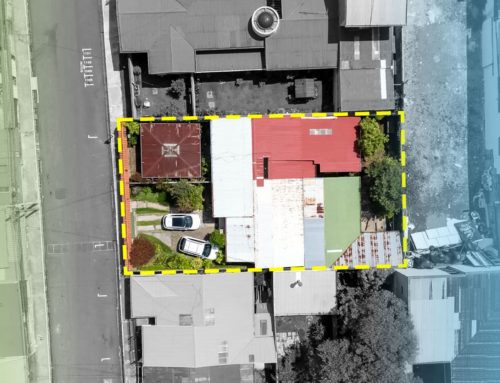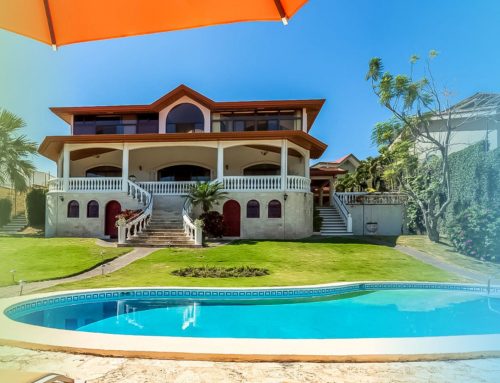A capital gain is when an asset is sold for a higher price than it was bought for. It is calculated by comparing the price for which the good was obtained and the price at which it is sold. Most capital gains in Costa Rica are taxed at 15% and there are several types of assets that may be subject to this tax, whether they are financial assets such as bonds and stocks or real estate.
In this article we tell you everything you need to know about the application of this tax in real estate transactions.
What is the capital gain tax in Costa Rica?
The capital gain tax in Costa Rica applies with the sale of houses, apartments, land, offices, and other types of real estate, but only if these are not the main residence of the owner; that is, if you sell the house you currently reside in, this tax does not apply.
In case of real estate, the Capital Gain Tax occurs when the property is transferred. This can happen by direct sale or by indirect sale (for example, through the endorsement of shares of a company).
The owner can choose to cancel a 15% tax on capital gains or apply a 2.25% fee to the total value of the transaction. It is important to know which of this two percentages it’s better for the specific case, therefore it is advisable to consult a real estate specialist.
If the property is in the name of a financial investment fund, a 20% tax must be applied.

How and when does the capital gain tax apply in Costa Rica?
- To calculate the capital gains tax in Costa Rica, (which is the difference between the purchase value and the sale value), you must verify the acquisition value in Hacienda.
- The acquisition value adjusted to the current context and with acceptable technical references for the Ministerio de Hacienda. The new law establishes that the acquisition value must be updated with the consumer price index calculated by the INEC, the municipal indexes, and also the investments and improvements of the property.
- Other documents that are not specifically the acquisition value given by Hacienda cannot be used for these purposes.
- The law indicates that in cases of capital gains, obtained by the transfer of the dwelling house or other depreciable assets, the tax will not be applied, if the owner demonstrates, to the full satisfaction of the Tax Administration, that this product has been invested in acquiring another dwelling house or other similar depreciable asset, within the six months following the transfer.
- Likewise, capital gains originating from the disposal of dwelling houses, whose taxable amount does not exceed one hundred thousand colones (¢100,000.00), will not be taxed.

How is there a capital loss?
Capital loss occurs when the value of the taxpayers’ assets decreases due to an alteration made, such as occurs when the sale price of a capital asset is less than its acquisition value.
The formula to know if there is a loss (or capital gain) is as follows:
![]()
V=actual amount of the acquisition value, investment value or improvement value, as applicable.
D1,D2,D3,Dn= variation of the Consumer Price Index (IPC) published by the INEC for the corresponding months, starting from the month of the year in which the real amount or the investments and improvements have been paid, which will be used as factors for the update.
In the case of real estate transactions, the transfer value will consist of the following data:
- The full sale amount
- Acquisition value; which will be constituted by the sum of the real amount of the acquisition + the cost of investments and improvements that have been made.
How to declare the capital gain tax in Costa Rica?
The declaration and payment of the tax on capital gain when selling your property is an obligation that must be met by the individual or legal entity that transmits or sells the property. For this, form D-162 “Declaración de ganancias y pérdidas de capital” must be used.
This form is available on the portal ATV del Ministerio de Hacienda. And it must be filled in spanish, therefore if you have any doubts do not hesitate to consult a real estate specialist.
Capital gain from the sale of property for a non-resident owner in Costa Rica.
Capital gain from the sale of property for a non-resident owner in Costa Rica. When a non-resident generates a capital gain from the sale of an asset of their property in Costa Rica, the buyer must withhold 2.25% of the established sale price, as regulated in article 28 ter of the Income Tax Law. However, like the calculation of capital gain for a resident, it can also be calculated as 15% on the profit from the sale if it is not the first time that the property has been sold after July 1, 2019.
So, when a non-resident sells their property in Costa Rica and generates a capital gain, the buyer must withhold the payment of the tax to ensure its payment. There are two options for calculating the tax, which depend on the date of acquisition of the asset and not the subject’s status as a resident or non-resident. The regulation is applicable to both domiciled and non-domiciled taxpayers.
If you have questions regarding the capital gains tax in Costa Rica, how it works or how you should file your declaration, do not hesitate to contact our specialized Nativu advisors to ask any questions regarding this procedure.








